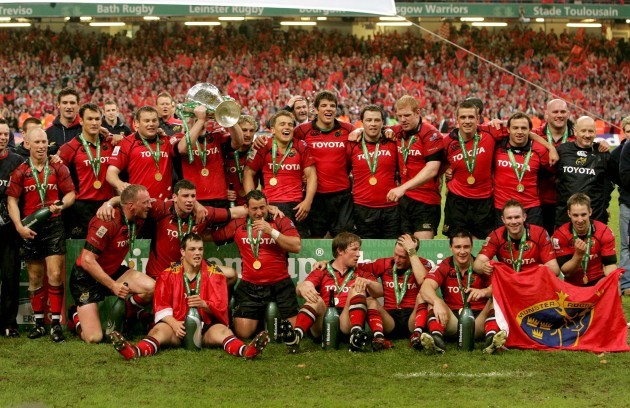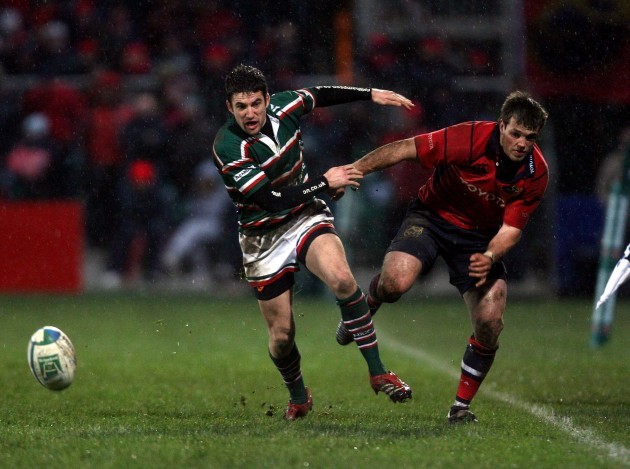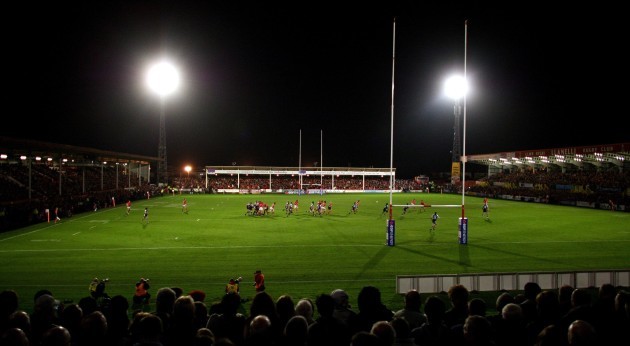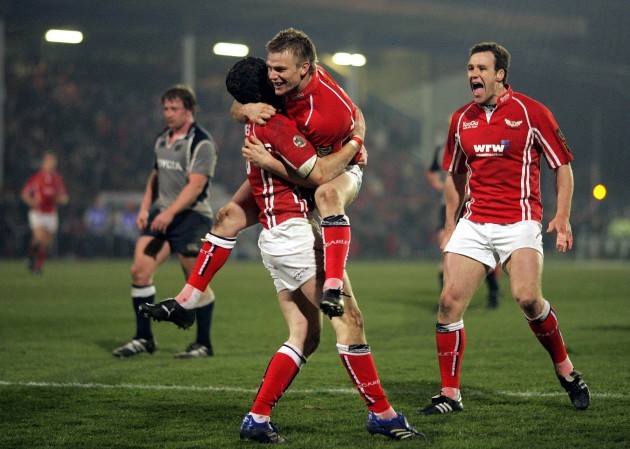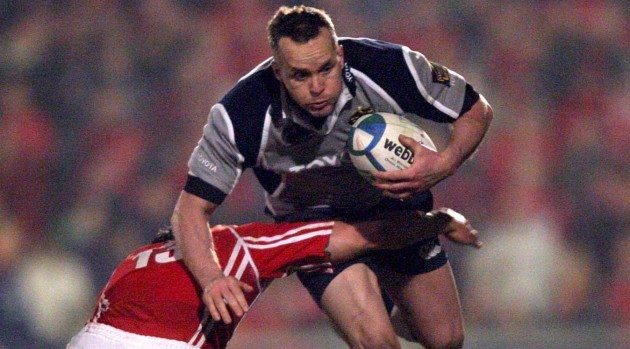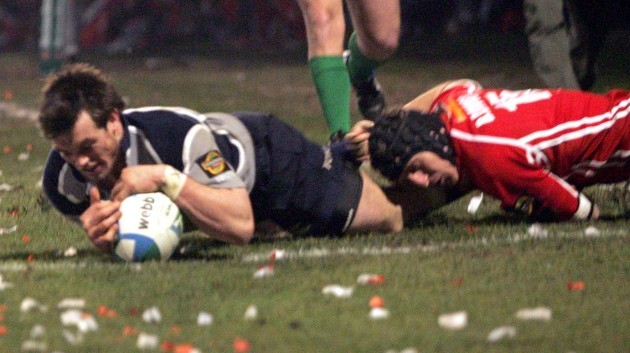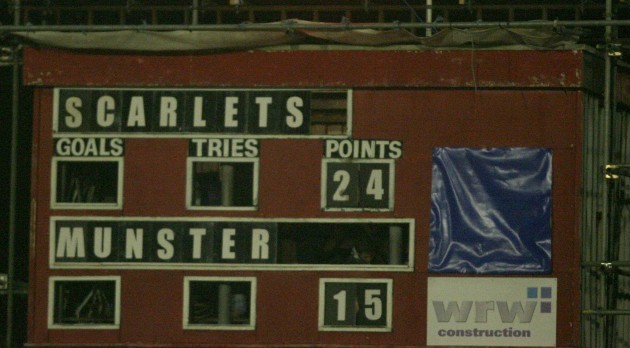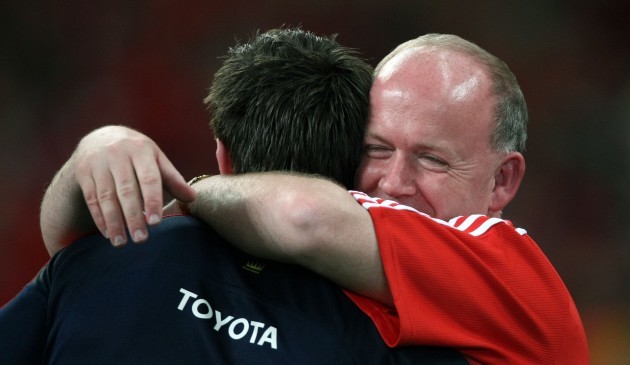GOING INTO THE summer of 2007, Munster knew they had work to do if they were to regain their status as champions of Europe.
Before that work began, however, a holiday was the priority for Ian Dowling. Sacrificing the previous off-season had backfired for the 24-year-old winger. He was determined not to make the same mistake again.
Things hadn’t gone according to plan for Munster in their first season after finally tasting Heineken Cup success. A quarter-final exit in Europe, coupled with a mid-table finish in the Magners League, told head coach Declan Kidney that his team were failing to reach the high standards they had set for themselves.
There were warning signs, notably on 21 January 2007 when Leicester Tigers ended their 12-year unbeaten European run at Thomond Park. But it was the night of 30 March, when Munster resumed their defence of the Heineken Cup in the knockout stages, which ultimately proved to be a turning point for Kidney’s side in their bid for more European success.
“The Scarlets were the better team on the night,” Dowling recalls. “They ran us ragged. They were a very fast outfit. That’s probably known as a golden generation of Irish rugby but I think it was the same for the Welsh.
“That Scarlets team just oozed class and it was full of Lions — Matthew Rees, Dwayne Peel, Stephen Jones, Daffyd James. Simon Easterby was their captain as well and he was a class act.
“They were always a serious team but they probably didn’t have the success that people might have expected. We always had good battles against them. They were always there or thereabouts.”
Munster could scarcely have hoped for a better start to their reign as European champions. A victory over Leicester Tigers at Welford Road suggested that the southern province were in good shape to emulate Leicester’s achievement of 2002, when the English side overcame Munster in the final to become the only team thus far to retain the Heineken Cup.
Home and away wins followed against both Cardiff Blues and Bourgoin, but Leicester’s historic triumph in Limerick on the final weekend of the pool stages was undoubtedly a setback.
Instead of sealing a home quarter-final, Munster now faced the prospect of travelling away to take on a Llanelli Scarlets outfit who had been flawless in a pool that contained Toulouse, Ulster and London Irish.
Despite missing out on winning the championship on points difference to France, Munster’s international contingent could emerge from the Six Nations high on confidence. However, their chances of victory in Llanelli were hampered significantly by the loss of talismanic captain Paul O’Connell to injury.
If Munster, in spite of two previous final appearances, had continued to harness the spirit of the underdog over the years, they were now very much the team to beat since getting the better of Biarritz in the Heineken Cup decider of May 2006. Declan Kidney’s team were a major scalp and the Scarlets were lining up an ambush.
So often the beneficiaries of vociferous home support in a compact, old-fashioned ground, Munster found themselves on the other side of the equation when they took to the field in front of a crowd of 10,800 at Stradey Park on Friday night, 30 March 2007.
From the outset, the intensity the Scarlets brought to the collisions delivered a clear message to the visitors. There was going to be a long night ahead and nothing was going to come easily for a Munster side who never looked like themselves — and not just because of the unfamiliar grey kit.
“It was one of those days when everything that could go wrong, did go wrong,” Dowling says. “The Scarlets took their tries really well. We were finding ourselves in mismatches and missing tackles that we usually never would. They really delivered on what was a big occasion, whereas we didn’t. They were full value for their win.”
It took less than five minutes for the Scarlets to register the first of their three tries. Despite Dowling’s best efforts, Daffyd James managed to get over in the corner and Stephen Jones defied the difficult angle by adding the extras for the hosts.
As the interval approached, the Scarlets’ lead still stood at 7-0 and Munster would have been satisfied going in at the break within touching distance. However, the complexion changed dramatically in the final three minutes of the opening period.
With the aid of the crossbar, Barry Davies kicked a huge penalty from inside his own half. But there was more to come from the Scarlets before referee Chris White could blow the half-time whistle.
“The tackling is non-existent at times from Munster,” said Sky Sports commentator Miles Harrison as the clock advanced beyond the 40-minute mark and the Scarlets kept chipping away. Eventually, Gavin Thomas found his way over and Munster had to come to terms with a 17-point deficit while they headed for the dressing room.
Dowling: “Going in 7-0 down wouldn’t have been so bad. We could have talked ourselves through that and identified what needed to be done a little more easily. It wouldn’t have been a big deficit to come back from.
“But 17-0 down, it changed things a lot, even though it wouldn’t have been the first time we would have had to come back from being a fair bit behind. That would have been a big blow for us to concede those scores at that stage of the game.”
While a sense of urgency was required from Munster upon the resumption, the one-way traffic in favour of the home side continued initially, with Mark Jones (twice) and Barry Davies both going close in the early stages of the second half.
With an hour on the clock, Munster finally opened their account when Ronan O’Gara kicked a close-range penalty. It was the first indication that the momentum may have been about to shift. Two minutes after he was introduced from the bench, Inoke Afeaki was sent to the sin bin for collapsing a maul as Munster progressed inside the Scarlets’ 22.
On 67 minutes, Lifeimi Mafi broke from deep inside Munster’s half before the ball found its way to Christian Cullen via Alan Quinlan and Denis Leamy. Cullen released Dowling to score in the corner, despite the appearance of a forward pass from the legendary All Black.
A successful conversion would have reduced the gap to seven points, but O’Gara’s effort drifted outside the near post, affording the Scarlets a measure of breathing space entering the closing stages.
The Scarlets continued to find gaps in the Munster defence and Barry Davies capitalised with seven minutes remaining. When substitute Donnacha Ryan forced his way over for a 79th minute try, it was little more than consolation for Munster as their Heineken Cup defence ground to a shuddering halt.
When the public post-mortem began, the suggestion was that Munster may have been suffering a psychological hangover from January’s loss to Leicester. According to Dowling, however, each defeat merely signified that they had simply allowed themselves to fall off the pace.
“It was probably just another sign that we needed to be better,” he says. “When you have success, every year you need to tell yourself that the teams behind you are going to get better. That’s something Mark McCall [Saracens' director of rugby] was saying recently too.
“For one reason or another, we didn’t reach the heights or meet our expectations on the pitch that season. It’s difficult to pinpoint exactly where it went wrong, and I don’t think it was down to one specific thing.
Llanelli Scarlets: Barry Davies; Dafydd James, Regan King, Gavin Evans, Mark Jones; Stephen Jones, Dwayne Peel; Iestyn Thomas, Matthew Rees, Deacon Manu; Vernon Cooper (Inoke Afeaki, 60), Scott MacLeod; Simon Easterby (captain), Gavin Thomas, Alix Popham (Daffyd Jones, 75). Munster: Christian Cullen; John Kelly, Lifeimi Mafi, Trevor Halstead, Ian Dowling (Tomas O’Leary, 75); Ronan O’Gara (captain), Peter Stringer; Marcus Horan, Jerry Flannery, John Hayes; Donncha O’Callaghan, Mick O’Driscoll (Donnacha Ryan, 78); Alan Quinlan, David Wallace, Denis Leamy.
“It was probably a multitude of reasons as to why we weren’t performing to the levels we expected. I don’t think there was a hangover from the Leicester game. Those results were just indicative of the fact that we weren’t really on top of things the way we should have been.”
He adds: ”It was definitely a low-point for us as a team. Having been champions the previous year, we obviously would have expected to give a better account of ourselves. You want to justify that champions tag. I know that season was a massive learning curve for me personally.”
Although Munster still had five Magners League games remaining, the end of that 2006-07 season couldn’t come quickly enough for Dowling following their disappointment in Llanelli. After making an almost overnight transition from All-Ireland League rugby with Shannon to a Heineken Cup winning season with Munster in 2005-06, a chance to recharge was required.
“As soon as that season was over I went away on holiday. Because I had gone from playing with Shannon to playing with Munster in the Heineken Cup, I just wanted more. So I had just kept training during the off-season to try and get the edge,” Dowling explains.
“But ultimately I ended up being burnt out and then I didn’t perform how I wanted to. So the first thing I did was I booked a flight, went to Australia, caught up with friends and switched off for three or four weeks.”
Munster didn’t have to wait long to avenge that defeat to the Scarlets, who came up short against Leicester in the semi-finals. For the 2007-08 Heineken Cup, Munster were drawn in Pool 5 along with the Welsh side, Clermont Auvergne and defending champions Wasps.
Despite losing in England and France, Munster topped the standings thanks to back-to-back wins over the Scarlets and home victories against Wasps and Clermont. Gloucester and Saracens were accounted for in the knockout stages, before they regained the Heineken Cup in May 2008 by overcoming Toulouse.
Dowling: “After coming back from that holiday, I really felt refreshed and I was ready to attack the season. I think a lot of the lads would have felt the same and we started meeting our own expectations again from pre-season onwards. Did losing to the Scarlets play a big part in that? Yeah, definitely.
“When you look back at their tries and how we defended for them, and then compare that to how we were the following season, there was a big difference defensively. They seemed to get their quick-footed guys into mismatches with us on quite a few occasions and they took advantage of that.
“They probably should have had one or two more tries on the night. It’s hard to recall exactly but you’re kind of looking at it and scratching your head a little bit. How I defended towards the end of my career and how I defended that night would have been very different.
“We had new additions which strengthened us as well, like Rua Tipoki, Paul Warwick and Dougie [Howlett] who came in later. Deccie organised a fairly brutal analysis to see where we could get better. Tough decisions were made but we kicked on, in fairness. When you don’t perform, as we didn’t that night in Llanelli, you need a pretty open and honest review if you’re going to find the solution.”
Their penchant for open, expansive, attacking rugby causes Dowling to see similarities between the current Scarlets side and the class of 2007. However, he’s hoping for a different outcome between the teams in this evening’s Guinness Pro12 final at the Aviva Stadium.
“I think they’re capable of tearing any team apart with the backs that they have. They were incredibly impressive against Leinster [in the semi-final] and they’re obviously full of confidence. I think it has the ingredients to be a very exciting final,” says Dowling, who’s now a physio in Limerick having been forced to retire due to a hip injury in 2011.
“Munster will be disappointed by how the Scarlets turned them over at Thomond Park earlier in the season as well. Hopefully we’ll see plenty of free-flowing rugby and a Munster win.”
